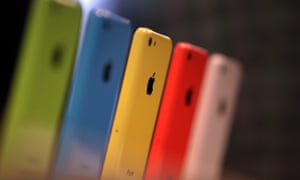Cupertino’s battle with the FBI heads to Washington, with Apple supported by Salihin Kondoker whose wife was shot thrice in the 2 December attacks

The husband of one of the San Bernardino shooting survivors has backed Apple in its battle with the FBI, ahead of a congressional hearing on Tuesday.
Late on Monday night, Salihin Kondoker, whose wife Anies Kondoker was shot three times in the 2 December attacks, said he believed Apple should not be forced to help the FBI access the iPhone 5C of one of the shooters.
Salihin Kondoker filed an amicus brief siding with the company, explaining that his decision was largely due to the fact that it is “unlikely there is any valuable information on this phone”.
In the letter, obtained by Buzzfeed, he said: “This was a work phone. My wife also had an iPhone issued by the county and she did not use it for any personal communication. San Bernardino is one of the largest counties in the country. They can track the phone on GPS in case they needed to determine where people were. Second, both the iCloud account and carrier account were controlled by the county so they could track any communications. This was common knowledge among my wife and other employees.
“Why then would someone store vital contacts related to an attack on a phone they knew the county had access to? They destroyed their personal phones after the attack. And I believe they did that for a reason.”
But Salihin Kondoker also supported Apple’s arguments on the principle of the matter, writing: “I believe privacy is important and Apple should stay firm in their decision.
“Neither I, nor my wife, want to raise our children in a world where privacy is the tradeoff for security. I believe this case will have a huge impact all over the world. You will have agencies coming from all over the world to get access to the software the FBI is asking Apple for. It will be abused all over to spy on innocent people.”
His stance is in contrast to the that of a number of other relatives of victims, some of whom have said the FBI should have access to the material on the phone. Robert Velasco, the father of murdered 27-year-old Yvette Velasco, said that the phone could reveal other extremist plots.
“The only way to find out is to open up that phone and get in there,” he told the Associated Press. “A lot of the families of the victims, we’re kind of angry and confused as to why Apple is refusing to do this.”
Also on Monday, a New York magistrate had rejected the FBI’s request for access to a drug dealer’s iPhone in a case similar to the San Bernardino case. Judge James Orenstein said that the FBI’s case, that a 200-year-old law entitles it to demand Apple write software to weaken the security on iPhones, has implications that are “so far reaching as to produce impermissibly absurd results”.
The result of the court accepting the government’s argument would, Orenstein said, be “so expansive – and in particular, in such tension with the doctrine of separation of powers – as to cast doubt on the [law’s] constitutionality if adopted.”
Apple will welcome support, from the law and from relatives of victims, as it arrives in Washington, DC, on Tuesday to testify before Congress over its dispute with the FBI. Apple’s general counsel, Bruce Sewell, will tell the House Judiciary Committee: “We now find ourselves at the centre of an extraordinary circumstance. The FBI has asked a court to order us to give them something we don’t have. To create an operating system that does not exist — because it would be too dangerous.
“They are asking for a backdoor into the iPhone — specifically to build a software tool that can break the encryption system which protects personal information on every iPhone.”
He will add that the key questions should be answered, not by the courts, but by legislation: “Do we want to put a limit on the technology that protects our data, and therefore our privacy and our safety, in the face of increasingly sophisticated cyber attacks? Should the FBI be allowed to stop Apple, or any company, from offering the American people the safest and most secure product it can make? Should the FBI have the right to compel a company to produce a product it doesn’t already make, to the FBI’s exact specifications and for the FBI’s use?
“We believe that each of these questions deserves a healthy discussion, and any decision should be made after a thoughtful and honest consideration of the facts. Most importantly, the decisions should be made by you and your colleagues as representatives of the people, rather than through a warrant request based on a 220-year-old-statute.”
[Source:- Thr Gurdian]
